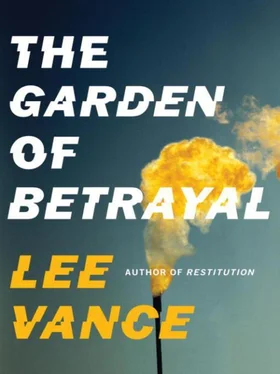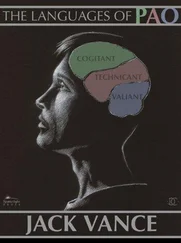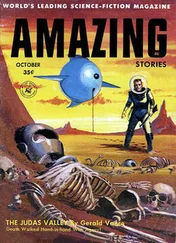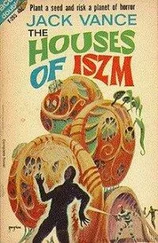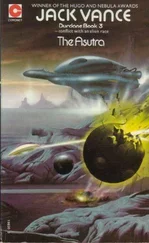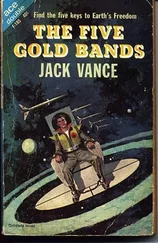Lee Vance - The Garden of Betrayal
Здесь есть возможность читать онлайн «Lee Vance - The Garden of Betrayal» весь текст электронной книги совершенно бесплатно (целиком полную версию без сокращений). В некоторых случаях можно слушать аудио, скачать через торрент в формате fb2 и присутствует краткое содержание. Жанр: Триллер, на английском языке. Описание произведения, (предисловие) а так же отзывы посетителей доступны на портале библиотеки ЛибКат.
- Название:The Garden of Betrayal
- Автор:
- Жанр:
- Год:неизвестен
- ISBN:нет данных
- Рейтинг книги:4 / 5. Голосов: 1
-
Избранное:Добавить в избранное
- Отзывы:
-
Ваша оценка:
- 80
- 1
- 2
- 3
- 4
- 5
The Garden of Betrayal: краткое содержание, описание и аннотация
Предлагаем к чтению аннотацию, описание, краткое содержание или предисловие (зависит от того, что написал сам автор книги «The Garden of Betrayal»). Если вы не нашли необходимую информацию о книге — напишите в комментариях, мы постараемся отыскать её.
The Garden of Betrayal — читать онлайн бесплатно полную книгу (весь текст) целиком
Ниже представлен текст книги, разбитый по страницам. Система сохранения места последней прочитанной страницы, позволяет с удобством читать онлайн бесплатно книгу «The Garden of Betrayal», без необходимости каждый раз заново искать на чём Вы остановились. Поставьте закладку, и сможете в любой момент перейти на страницу, на которой закончили чтение.
Интервал:
Закладка:
“Everyone despairs. Trust me. What’s important is to find a reason to keep going. A job you enjoy, or a girl. A family…”
“You had something special. It doesn’t work out for everyone that way.”
I half closed my eyes, waiting a moment for the emotional pain of the thrust to dissipate. It was true. Claire and I had had something special, with each other and with the kids. Alex was the product of a bitter divorce, one that had left him and his mother estranged from his father and laid the groundwork for his obsession. I took a deep breath and plunged on.
“Sometimes it does, and sometimes it doesn’t. But it makes me sick to see you beating yourself up because you think you’re letting Walter down. You’re his son. You shouldn’t have to grovel for his affection.”
Alex rubbed his hairline again, nodded without meeting my eye, and threw back the rest of his vodka.
“You’re right,” he slurred. “I’m his son.” He got up, almost overturning the table. “I have to go now.”
“Back to the office?” I asked apprehensively.
“No.” He flapped one hand at me vaguely. “I have to be somewhere. I’ll see you tomorrow.”
I trailed a few feet behind as he staggered out the door and flagged a taxi. He fell into the rear seat and slumped sideways as it drove away. Rubbing the back of my neck with one hand, I realized my underarms were damp with sweat. I hadn’t known he was drinking this heavily. The barman stared silently as I approached.
“How much do I owe you?”
“He has a tab.”
It figured. I dropped a ten on the counter for my beer anyway.
“How often does he get like that?”
The barman shrugged, perhaps reluctant to talk about a valued customer.
“Maybe you should consider cutting him off.”
“Maybe,” the barman replied. “But he’d only go someplace else. And I’m not the one making him unhappy. You ever think about that?”
4
I headed back to the office, needing to get caught up on e-mail and to prepare some notes for my next day’s bulletin. Late afternoon is a productive time for me, the sole quietus in the global trading day. New York is done by four, the Asians don’t get going until eight, and Sydney and Melbourne-the only open financial centers-are too small to generate much activity. Absent the blinking phone lines and beeping market data screens and the constant background cacophony of rage and glee from the trading floor, I can concentrate.
An hour later, I threw my pen onto my desk and gave up. Alex was on my mind, but more than that, the images I’d seen earlier were haunting me. Hundreds dead, and every one of them somebody’s child. A voice in my head noted bitterly that at least these families knew what had happened to their loved ones and could grieve accordingly. It was a hateful, self-pitying thought, and I did my best to push it away as I packed my briefcase. I wanted to be home with Claire and Kate.
It was dark and cold out, but the sky had cleared. Cobra kept a line of Town Cars waiting from five to midnight despite the straitened economy, and Walter-ever gracious when it came to small things-allowed me free use. I stepped into the lead car and told the driver my address. He handed me a copy of the afternoon Post and then jockeyed his way into the dense traffic. The pipeline explosion dominated the first ten pages of the paper, and I was identified by name as the source of the Nord Stream video in two separate articles. Both mentioned that I’d declined comment. My reticence had been more than a desire to protect Gavin-I wasn’t interested in garnering publicity on the back of a tragedy.
There was a time when I’d thought very differently. Back when I was a Wall Street hotshot, I’d been as calculated in my pursuit of column inches as any scheming politician. Every war, every natural disaster, every refinery fire or tanker accident, was an opportunity for me to elevate my professional profile by pontificating on TV and in the press, explaining what the event meant to the energy industry and speculating as to what might happen next. It shames me to recall that I never took a moment to sympathize with the people afflicted, instead taking pride in my “objectivity.” The single great lesson of my adult life-and one I’d give anything not to have learned so well-is that we’re all vulnerable.
I set the Post aside and shifted restlessly in my seat. As always at this time of year, the avenues were choked with suburbanites intent on seeing the Christmas tree at Rockefeller Center or the animatronic store windows on Fifth Avenue. A surprising number were still driving massive, fuel-guzzling SUVs. Looking out the window at the noxious clouds of automotive exhaust, I found myself wondering what the world would look like in fifty years. It’s not just global warming-everyone in the energy business knows there isn’t anywhere near enough oil and gas in the world to meet long-term demand under any realistic economic scenario. It’s a strangely obvious issue that doesn’t get much play, perhaps because the constituencies that might naturally address it are too busy focusing on the quixotic objective of reducing consumption. Energy demand fluctuates with global GDP, but in the long run, no number of power-efficient fluorescent bulbs are going to offset skyrocketing use from developing nations. Every single available drop of oil and molecule of gas is going to be consumed by somebody, somewhere, unless there’s a lower-cost alternative, and the sooner we figure out that alternative, the less painful the inevitable transition is going to be. No matter what happens in the future, though, I strongly doubt there will be anything like a Cadillac Escalade, save perhaps in a museum.
Rashid called as my car entered Central Park. We worked our way through the usual preliminaries and then spent a few fruitless minutes probing each other on Nord Stream. Neither of us had anything more to tell the other.
“What’s your interest here, anyway?” I asked. OPEC dealt with oil, not natural gas. And to the extent its members also exported gas, their customer was Asia rather than Europe.
“Nothing specific. A couple of Middle Eastern banks are in the Nord Stream financing syndicate. One lost its European head today. And the senior people in the Kingdom get edgy whenever there’s a terrorist event. They like to be kept informed.”
The Kingdom was Saudi Arabia, and their concern was easy to understand. Fifteen of the nineteen September 11 hijackers had been Saudis, a fact that made the royal family nervous as hell about political repercussions. The Saudis lived in a bad neighborhood, and they needed America for security.
“Is there any reason to think Saudi nationals were involved?”
“Not that I know of,” he said. “I have to answer a call on my other line. Stay in touch.”
I slipped my phone back into my jacket pocket, inclined to accept his explanation at face value. Rashid’s position with OPEC made him dependent on the goodwill of the more influential member states, which was the primary reason he swapped information with me. It helped him to be in the know about matters of interest to his constituents.
I tipped the driver a five when we finally got to my building, spent a couple of minutes bemoaning the Knicks with the doorman, and then rode the elevator up to my floor. The elevator car is antique mahogany banded by brass, the lower panels scuffed and scratched by generations of strollers and scooters and teenage roughhousing. As always, my eyes were drawn to a ding beneath the operating panel that an excited Kyle had left with a carelessly handled baseball bat when he was eleven. I touched the ding sometimes, when I was alone. The junk mail the super intercepted made me sad, because it reminded me of all the things I’d never get to do with my son-to teach him to shave, or to visit colleges with him, or to slip him a little extra money so he could take a girl to a concert and a nice dinner. But the ding in the elevator made me happy. He’d gotten three hits the morning he made it, and his coach had awarded him the game ball. It had been a great day, one that I liked to remember.
Читать дальшеИнтервал:
Закладка:
Похожие книги на «The Garden of Betrayal»
Представляем Вашему вниманию похожие книги на «The Garden of Betrayal» списком для выбора. Мы отобрали схожую по названию и смыслу литературу в надежде предоставить читателям больше вариантов отыскать новые, интересные, ещё непрочитанные произведения.
Обсуждение, отзывы о книге «The Garden of Betrayal» и просто собственные мнения читателей. Оставьте ваши комментарии, напишите, что Вы думаете о произведении, его смысле или главных героях. Укажите что конкретно понравилось, а что нет, и почему Вы так считаете.
